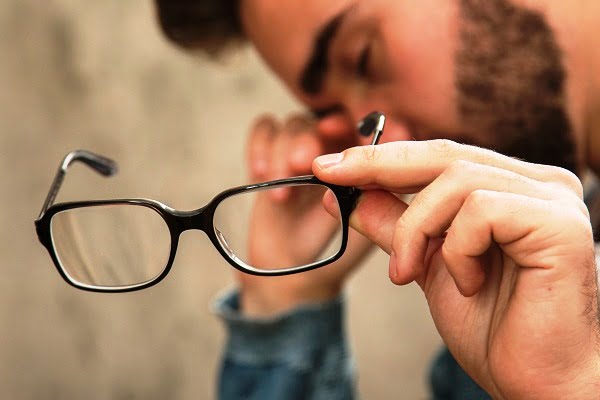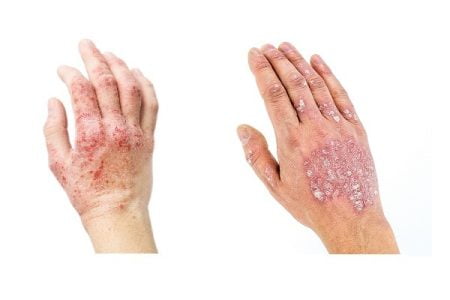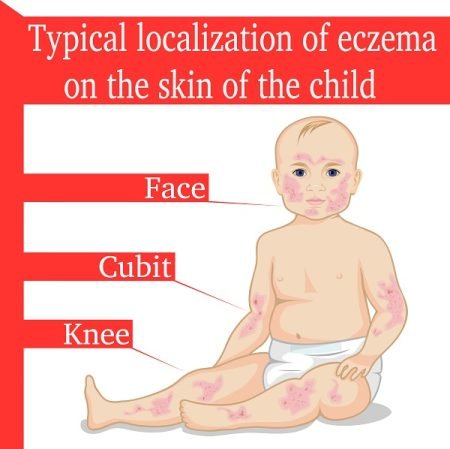Eczema on Eyelids and Under Eyes: Causes, Symptoms, Treatment
- Updated on: Jun 29, 2024
- 4 min Read
- Published on Apr 22, 2021

What is eczema?
Eczema is a skin condition in which patches of skin become swollen, itchy, reddish, and cracked. Blisters may also occur in some cases.
It most commonly affects children, although adults can also get it. Eczema is also called atopic dermatitis. Treatment includes oral medications, steroids, topical creams and laser/light therapy.
Atopic dermatitis (eczema) is usually long lasting and the symptoms tend to flare periodically. Sometimes, asthma or hay fever can also occur in eczema. Read more about types of eczema.
Eczema on eyelids, under eyes, and around eyes
Your skin around the eyes is thinner and more delicate as compared to the skin of other areas. This may make the area under eyes and around eyes more susceptible to rashes or irritations caused by skin diseases such as eczema.
Eczema under the eyes or eczema on eyelids can be challenging to manage and treat because of the sensitive skin in this area. Eyelid or eye swelling may affect your vision and cause severe complications if not attended timely and properly. Treatment of eczema around eyes focuses on keeping the affected area moist, reducing the inflammation under eyes and avoiding exposure to irritants or any triggers.
See also: An Overview of Eczema
See also: What Causes Eczema?
Symptoms of eczema on eyelids and eczema under eyes
Common symptoms and signs of eczema on eyelids or around eyes are:
- inflammation of the thin, sensitive skin around the eyes
- irritation of eyes/eyelids
- swollen, dry, and reddened eyes
- one or both the eyes may be affected
- Upper, lower or both eyelids on one or both sides can be affected by contact dermatitis (eczema)
- if the condition becomes severe, the eyelids can become thickened (called lichenification)
- stinging or burning sensation in eyes
- lids of the eyes are red and scaly
- skin markings
- eyelid margins may also be affected (a condition called blepharitis)
- contact with the same eczema trigger that caused the symptoms may not lead to a rash on other areas of skin
How is the diagnosis of eyelid contact dermatitis (eczema under eyes) made?
Diagnosis of eyelid contact dermatitis is done by identifying its characteristic features in a physical examination. These features are:
- An itchy rash that affects one or both the eyelids or areas near eyes
- Suspicion that the symptoms have been caused or aggravated by certain allergens (triggers)
- Other characteristic signs as discussed above
Patch tests can be recommended by your doctor to confirm the allergens that trigger the flare ups of eyelid eczema.
Read more: Eczema Diagnosis and Tests
Treatment of eyelids eczema (eyelid contact dermatitis), Triggers of eyelid eczema
It is important to keep the eyes and area around the eyes clean. Avoid touching it or scratching it. This can otherwise further spread the irritation and infection.
It is helpful to identify the irritants, allergens and triggers that can cause flare ups of eczema, and avoid coming in contact with them. Common triggers of eczema on eyelids are:
- false eyelashes
- contact lens
- certain makeup items and/brands
- airborne allergens
- certain sunscreens
- certain or all perfumes and scents
- goggles
- eye drops
- certain soaps and face-washes
- acids and alkalis
- chemicals such as chlorine under goggles during swimming
- dust particles
- hydrophobic substances (drying agents)
- cosmetics such as eyeliner, eye shadow, mascara etc
You can use the following treatment options for managing the symptoms of eczema under eyes or eyelids:
Calcineurin inhibitors: It is used to treat inflammatory problems, such as atopic dermatitis (eczema) and psoriasis. It can be applied as cream or taken orally. You should not use it without doctor’s prescription as it can suppress immune function.
Corticosteroids: these are steroid-based creams that can be applied to the eyelids to treat inflammation, dryness, and other symptoms of eczema around eyes. Corticosteroids can be taken orally if the symptoms are severe. These creams should e use carefully. If used close to the eye, there is a risk of severe eye problems such as glaucoma when used for longer time periods.
Moisturizing creams: Creams that moisturize the skin can help relieve dryness and itching caused due to eczema. A variety of creams are available through prescription or over the counter. They are usually more effective for treating mild cases of eczema in eyes.
Common types of eczema in eyelids and their causes
Allergic contact dermatitis (eczema): Allergic contact dermatitis occurs as a result of an allergic reaction that causes inflammation of the skin. Certain cosmetic products or metals, such as nickel are common causes of allergic eczema.
Seborrheic dermatitis: Seborrheic dermatitis can cause the skin to become swollen with flakes. It usually affects the scalp but can also affect other areas of the body, such as the eyelids or areas around eyes.
Irritant contact dermatitis: It is caused when the eyelid comes in direct contact of something that can damage the outer layer of the skin. Certain types of cosmetics, soaps, face-washes, and detergents can cause this type of eczema.
Atopic dermatitis: Atopic dermatitis is a type of eczema that can affect the eyelids or areas around the eyes.
It is not exactly known what causes conditions such as atopic dermatitis. Scientists believe that genetic factors may play some role. The disease can run in family.
Prevention of eczema on eyelids and around eyes
You can take the following steps to prevent outbreaks and flare ups of eyelid dermatitis (eyelid eczema):
- Avoid scratching or rubbing eyelids.
- Avoid itching. Use over-the-counter medications to reduce the urge to itch. Try other anti-itching products available over the counter.
- Products that contain certain chemicals such as formaldehyde, lanolin, parabens or certain scents may cause irritation to the skin in some people. Avoid such substances.
- Use milder soaps. Don’t use soaps too often. Preferably, try antibacterial soaps without fragrance.
- Limit the use of artificial makeup. Using makeup around the eyes or eyelids such as mascara can irritate the sensitive skin around the eyes. Instead, use hypo-allergenic brands when needed.
- Making certain dietary changes can help: Certain food allergies can trigger eyelid dermatitis. For example, some people can get flare ups with dairy products. You should talk to a doctor before making any dietary changes.
The causes and triggers of eyelid dermatitis or eyelid eczema may vary. Not everyone can get the symptoms with same types of triggers. It is therefore important to understand the most important triggers that cause the flare ups in your eyelids.













4 Comments
I love the efforts you have put in this, regards for all the great articles.
Hi, jjust wanted tto say, I enjjoyed this post.
It was funny. Keepp on posting!
I like thee valuable infoo you provude foor your articles.
I’ll bookmaark your blog aand taoe a look at oce more right hhere regularly.
I’m moderately certain I’ll learn a lot oof new sthff proper
here! Best oof luck ffor the next!
Wonderful goods from you, man. I have understand yokur stuff previious tto
and you’re juust tooo magnificent. I reawlly like what yoou have acquired here, certainly like what yyou are saying and thhe way
in which you say it. You make it enjoyable and youu still take carde of to keep it smart.
I can nott wait to red far more from you. Thiis iis actually a great site.